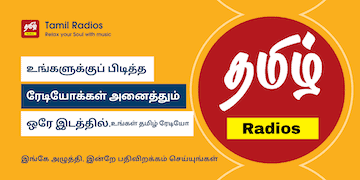ஆன்மிகம்
Astrology is a pseudoscience that claims to divine information about human affairs and terrestrial events by studying the movements and relative positions of celestial objects.
Astrology is a pseudoscience that claims to divine information about human affairs and terrestrial events by studying the movements and relative positions of celestial objects.[1][2][3][4] Astrology has been dated to at least the 2nd millennium BCE, and has its roots in calendrical systems used to predict seasonal shifts and to interpret celestial cycles as signs of divine communications.[5] Many cultures have attached importance to astronomical events, and some—such as the Hindus, Chinese, and the Maya—developed elaborate systems for predicting terrestrial events from celestial observations. Western astrology, one of the oldest astrological systems still in use, can trace its roots to 19th–17th century BCE Mesopotamia, from which it spread to Ancient Greece, Rome, the Arab world and eventually Central and Western Europe. Contemporary Western astrology is often associated with systems of horoscopes that purport to explain aspects of a person’s personality and predict significant events in their lives based on the positions of celestial objects; the majority of professional astrologers rely on such systems.[6]:83
Throughout most of its history, astrology was considered a scholarly tradition and was common in academic circles, often in close relation with astronomy, alchemy, meteorology, and medicine.[7] It was present in political circles and is mentioned in various works of literature, from Dante Alighieri and Geoffrey Chaucer to William Shakespeare, Lope de Vega, and Calderón de la Barca. Following the end of the 19th century and the wide-scale adoption of the scientific method, astrology has been challenged successfully on both theoretical[8]:249;[9] and experimental grounds,[10][11] and has been shown to have no scientific validity or explanatory power.[6] Astrology thus lost its academic and theoretical standing, and common belief in it has largely declined.[12] While polls have demonstrated that approximately one quarter of American, British, and Canadian people say they continue to believe that star and planet positions affect their lives,[13] astrology is now recognized as a pseudoscience—a belief that is incorrectly presented as scientific.
Karmic
Horary
Medical
Relationship
Fixed Stars
Zodiac
Burmese
Chinese
Electional
Horary
Horoscopic
Natal
Indian
Sidereal
Sri Lankan (Sinhalese)
Tibetan
Western
Tropical
Agricultural
Arab and Persian
Islamic
Babylonian
Celtic
Egyptian
Hellenistic
Hindu
Judicial
Katarchic
Mayan
Medical
Meteorological
Mundane
Nadi
Political
Cosmobiology
Financial
Hamburg School
Heliocentric
Huber School
Locational
Astrocartography
Psychological
Sun sign
Synoptical
Alchemy
classical elements
Chiromancy
Christianity
Esoteric
Geomancy
Kabbalisti
Numerology
Physiognomy
Phrenology
Rosicrucianism
I Ching
Tarot divination
-

சனிப்பெயர்ச்சி – சனி கிரகத்தின் பார்வையின் மாற்றம்
சனிப்பெயர்ச்சி – சனி கிரகத்தின் பார்வையின் மாற்றம் சனிப்பெயர்ச்சி என்பது சனி கிரகத்தின் பார்வையின் மாற்றம் அல்லது அந்த கிரகத்தின் நடப்பு நிலைமை மாற்றம் என்பதாகும். இது…
Read More » -

இன்றைய ராசிபலன் – 12 பிப்ரவரி 2025
பொருளடக்கம்இன்றைய ராசிபலன் – 12 பிப்ரவரி 2025 மேஷம் (Aries)ரிஷபம் (Taurus)மிதுனம் (Gemini)கடகம் (Cancer)சிம்மம் (Leo)கன்னி (Virgo)துலாம் (Libra)விருச்சிகம் (Scorpio)தனுசு (Sagittarius)மகரம் (Capricorn)கும்பம் (Aquarius)மீனம் (Pisces) இன்றைய…
Read More » -

இன்றைய ரிஷபம் ராசிபலன் – 10.02.2025
பொருளடக்கம்இன்றைய ரிஷபம் ராசிபலன் – 10-02-2025மேஷம்:ரிஷபம்:மிதுனம்:கடகம்:சிம்மம்:கன்னி:துலாம்:விருச்சிகம்:தனுசு:மகரம்:கும்பம்:மீனம்:குறிப்பு இன்றைய ரிஷபம் ராசிபலன் – 10-02-2025 மேஷம்: அனுகூலமான நாள். புதிய முயற்சி சாதகமாக முடியும். எதிர்பாராத செலவுகள் ஏற்பட்டாலும்…
Read More » -

குபேர யோகம் பெறப்போகும் ராசிகள்: குரு பெயர்ச்சி 2025 – 2026
குபேர யோகம் பெறப்போகும் ராசிகள்: குரு பெயர்ச்சி 2025 – 2026 குரு பெயர்ச்சி என்பது ஜோதிடத்தில் மிகவும் முக்கியமான நிகழ்வுகளில் ஒன்றாகும். குரு பகவான் ஒரு…
Read More » -

பெருவிரலை விட இரண்டாவது விரல் சிறியதாக இருந்தால்… கட்டாயம் அறியவும்
ஒவ்வொரு நபரின் இயல்பும் ஒருவருக்கொருவர் வேறுபட்டது, அந்த நபர் அதற்கேற்ப நடந்து கொள்கிறார். ஜோதிடத்தில், எந்தவொரு நபரின் ஆளுமையையும் அவரது உடல் அமைப்பிலிருந்து தீர்மானிக்க முடியும் என்று…
Read More » -

உங்க பெயர் R எழுத்தில் தொடங்குதா? எண்கணிதம் சொல்லும் புதிய தகவல்
பொதுவாக மனிதர்களாக பிறந்த அனைவருக்கும் தனித்துவமான ஜாதகம், பெயர், முக அமைப்பு, உடல், குடும்பம் இப்படி பல விடயங்கள் இருக்கும். இதில் ஒரு மனிதரை இன்னொரு மனிதரிடமிருந்து…
Read More » -

இன்றைய ராசிபலன் (Rasi Palan) – April 23, 2024 செவ்வாய்
புதிய முயற்சிகள் சாதகமாக முடியும். சகோதர வகையில் எதிர்பாராத செலவுகள் ஏற்படக்கூடும். தந்தைவழி உறவினர்களால் அனுகூலம் உண்டாகும். பிற்பகலுக்கு மேல் நண்பர்கள் மூலம் மகிழ்ச்சி தரும் செய்தி…
Read More » -

சுக்கிரனின் சஞ்சரிப்பு.., அதிர்ஷ்டத்தை கொத்தாக அள்ளப்போகும் 3 ராசியினர்
சுக்கிரன் செழிப்பு, செல்வம், அன்பு மற்றும் பொருள் மகிழ்ச்சியைத் தருகிறார். சுக்கிர பகவான் தற்போது மீன ராசியில் இருக்கும் ரேவதி நட்சத்திரத்தில் சஞ்சரித்து வருகிறார். இப்படி இருக்கும்…
Read More » -

வீட்டை அதிஷ்டம் தரும் வீடாக மாற்றணுமா? இதையெல்லாம் கட்டாயம் பண்ணுங்க
பொதுவாகவே வீட்டை கட்டும் போது வாஸ்து படி இருந்தால் செல்வம் செழிக்கும் என்பது நம்பிக்கை. குறிப்பாக வாஸ்து வீட்டில் வாழ்வோரின் மனநிலை மற்றும் எதிர்கால வாழ்க்கையில் பாரிய…
Read More » -

‘குரோதி’ வருடப்பிறப்பு – சுப நேரங்கள் – Tamil New Year Palan 2024
‘குரோதி’ வருடப்பிறப்பு சித்திரை புத்தாண்டு ‘குரோதி’ வருடமானது நாளை மறுதினம் 13.04.2024 சனிக்கிழமை பூர்வபக்ஷ ஷஷ்டி திதி, மிருகசீரிடம் நட்சத்திரம், சோபனம் நாமயோகம், கவுலவக்கரணம், துலாம் லக்னம்,…
Read More »










